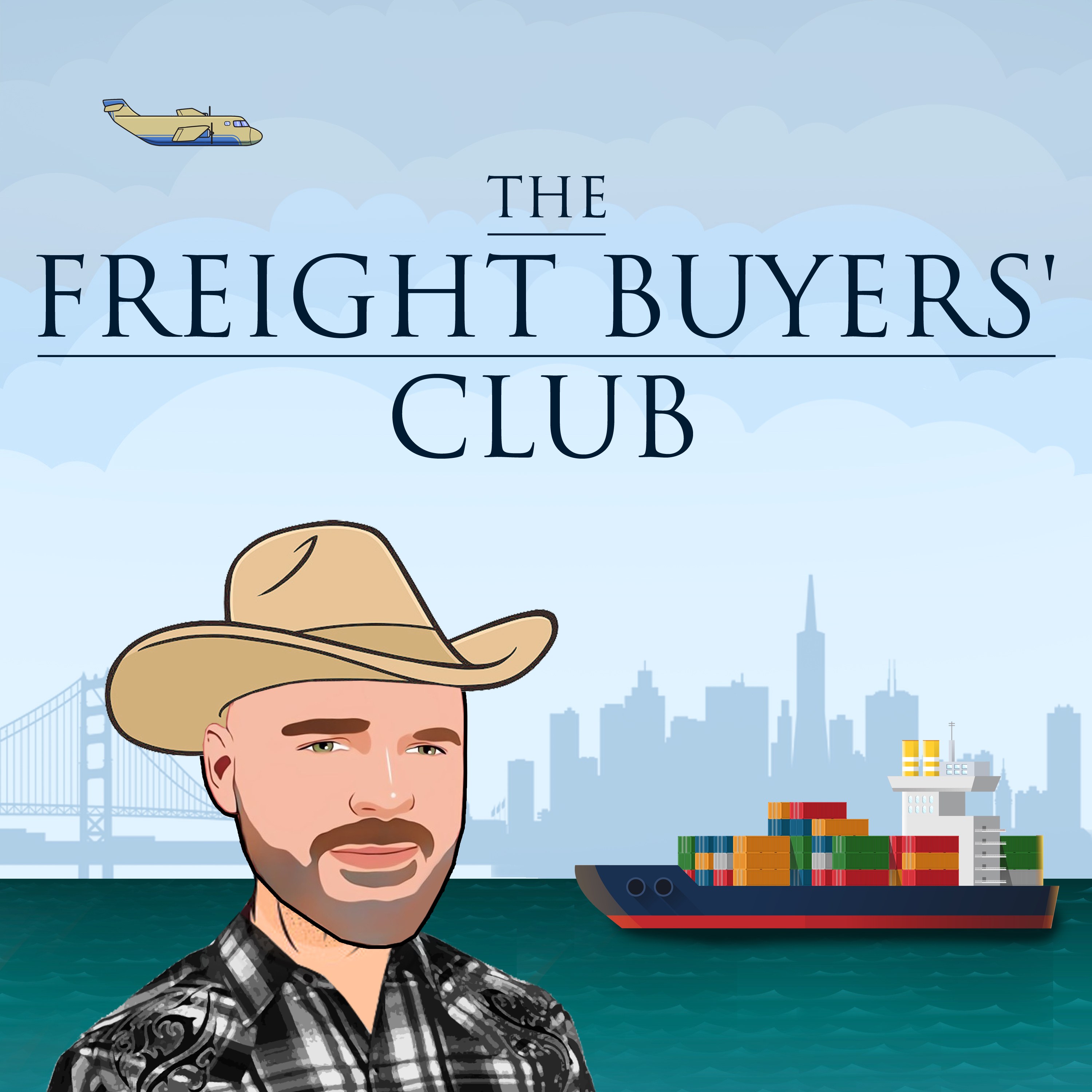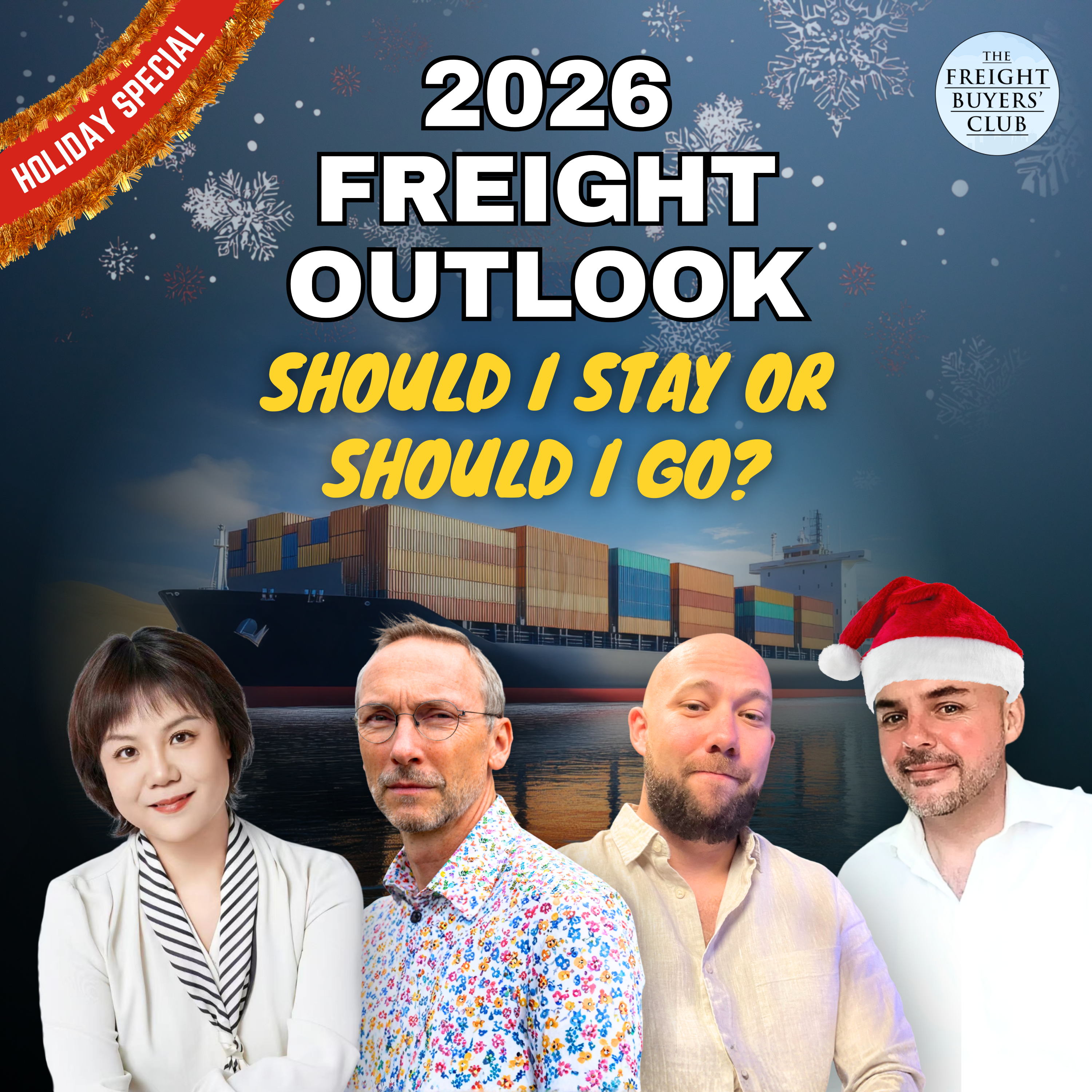Episode Transcript
[00:00:00] Speaker A: Foreign welcome to the Freight Buyers Club. I'm Mike King and this episode is kindly supported by Ontegos Cloud, the freight forwarder profitability specialist.
Today we've got two news. Two news or news, whatever you want to call it. The first new is, I'm delighted to say I'm joined today by Reiner Hogg, who's the new CEO of DHL supply chain IFA Jure. Welcome to the Freight Buyers Club.
[00:00:31] Speaker B: Thank you so much.
[00:00:32] Speaker A: And the second new is that we're actually coming from Truistorf in Germany where we're at the opening of the new DHL Innovation center for Europe.
So we're going to hear a little bit more about some of the things that have been going on here. Rainer, first up, we've seen so much about all the technology that DHL is developing.
Part of your job description is making that practical for your customers. How do you go about deciding what you're going to pilot and what's going to be parked?
[00:01:02] Speaker B: Well, I think innovation is part of our DNA and putting innovation and ideas into real life is pretty much what we are doing day by day. It means that we identify through talking to our customers, to our colleagues here from the Innovation center, we identify new technologies according to customer needs, according to how the businesses develop.
And once we have a technology like assisting picking robots, we put them into life. We do a pilot for sure. But then it's about the decision are these technologies scalable, which is very important for us. If they are scalable, we roll them out wherever it makes sense.
So one of the examples is the unloading robot, which you also have seen. And the unloading robot is basically something where we ask ourselves, how can we make the life of our people, the shop floor and in the support functions easier? That's the overarching question, let's say for us. And that's what we did, we got rid of a very, you know, of a process which is highly, how you call that highly physical. With a physical effort, we get rid of that and we are doing that now with the robotics.
[00:02:21] Speaker A: Which of these technologies, maybe it's robotics are delivering real tangible returns either for the DHL bottom line or for your customers, or both.
[00:02:32] Speaker B: I think there are several advantages. So robotics and automation can make processes more efficient, for sure. On the other hand, they also have a sustainability aspect and a safety aspect.
So if you see automation systems, warehousing systems help us to reduce space. It helps us also to reduce walking distance for our colleagues on the shop floor. And this de risks for potential safety risks that you have. So the less I need to walk and cross where forklifts are going, where pickers are going, the less I'm crossing these paths, the less potential safety incidents I could have. So there are several aspects and I would say one also very important is sustainability.
If you see the scarcity of warehousing space all across the region, then using the four walls of warehouse even better and getting more efficiency out of the four walls also has a sustainability factor.
[00:03:37] Speaker A: With your supply chain solutions, how important is digitalization and managing your data? We hear a lot about implementing AI, but you have to have that base data to make those sorts of solutions. Where can you tell me a little bit more about how you do that within DHL and for your customers?
[00:03:53] Speaker B: Yeah, we say that we are digital by default. That means that digitalization is something which is in our day to day. You spoke about data analytics. I think data analytics is in everybody's mind since many years already.
But it's taking real use of the data, which is a collection of data that we might have, but it's also a collection of data that our customers have. Getting in touch with our customers and having an open proactive dialogue with them, listening to their needs, analyzing the data, comparing with our experience that we have across the globe. By the way, that is where the value add comes from digitalization. And then it is about also as I said before, digital by default. What can we do digital what is still manual and there are still things I think in all the industries that we can avoid to do or we can do them easier with digitalization.
[00:04:49] Speaker A: Just on the operations side, we've seen a lot of disruptions to global supply chains this year. Some of them have come from the White House in terms of tariffs and your European business.
How has that affected your customers? Supply chain planning maybe in relation to inputs or from elsewhere that maybe end up in the US or maybe just in terms of the transit. Anything that goes across the Atlantic. Has it been something that's been difficult or complex to manage this year?
[00:05:17] Speaker B: Well, I'm not so sure if we should only talk about this year. I think there are challenges ongoing since a couple of years all around the globe. Independently of which type of disruption we are talking about. There are several types and we know that. But what I do think is that supply chains have become a lot more resilient and a lot more agile. And that is what is our aim since many years. We our to our customers. We want to have offer proper business continuity plans independently when a disruption might happen, to be able to shift trade lanes, to shift transportation mode, to shift maybe from omnishoring to near shoring. These are the things that are embedded in our discussions with our customers. I do think that we are very agile when it comes to a disruption. We can react very, very fast and very agile for our customers. Offer them to adapt their business to whatever is needed in that very specific moment.
[00:06:21] Speaker A: We've talked a lot here about what technologies will change the future.
On that resilience point that you make. How do you, have you got a similar sort of process or system to try and analyze what disruptions might emerge say in 2026 or beyond? Is there a radar for operational disruptions that you've seen that you've got a radar for technology?
[00:06:44] Speaker B: I think my answer to that would be we are not waiting for the next disruptions. Some of them honestly are also difficult to foresee. We learned that from the past. But what we are doing is we are taking certain measures with our customers to prevent and to be more secure if it comes to another disruption, foreseeable or unforeseeable. So that's why I'm saying you diversify probably regionally or geographically, globally, you diversify your stock locations. If we talk about near shoring omnisourcing versus single sourcing also not for us, not a trend anymore. That's day to day, that's embedded in business continuity, even mid and long term with our customers. So this is what we are doing but it's all about a very frequent, a very frequent dialogue with our discussion with our customers and business continuity plans that are not focusing on a short term topic, but more how resilient can work. We bring your supply chain as a customer mid and long term.
[00:07:51] Speaker A: Finally, Rainer, one prediction or forecast about a technology that you think is going to be most transformative for supply chains globally or in Europe in terms of what your customers will see and that you're working on at the moment.
[00:08:05] Speaker B: I do think it is if we talk about our focus technologies, it's bringing them to the next level. So. So I still do think that technology is advancing very quickly and what you saw could witness here today in the Innovation center is the current status of what we have in the site. But there are releases every year of, you know, our assisting picking robots. The ones that we implemented two years ago are in a different version than the ones that we have today. So I do think that what we are doing is we invest in the newest releases together with our partners. I do think we found quite some good technology for these unloading processes and there is more to come, honestly. And I also do think it is about observing the innovation ideas as close as we are doing that since many, many years.
[00:08:59] Speaker A: Rainer Haag, thanks for joining me today on the Freight Buyers Club.
[00:09:02] Speaker B: Thank you. Really enjoyed it.


